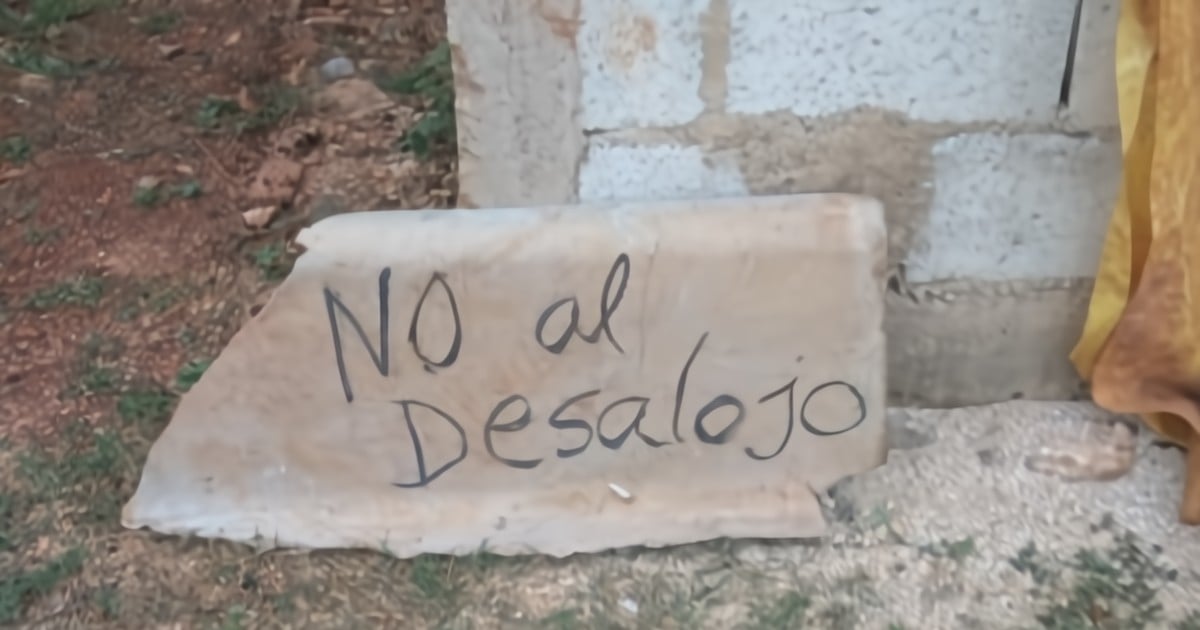The Cuban government has unveiled stricter measures to tackle the illegal occupation of homes and state properties, grounded in the provisions of the new Penal Code (Law No. 151), effective since December 2022. The state-run newspaper, Granma, recently published an article revealing that authorities can now evict illegal occupants immediately, bypassing the completion of judicial proceedings. While these actions aim to safeguard private and state property, they also highlight the profound social and economic inequalities driving these occupations across Cuba.
Legal Framework and Enforcement
Article 421 of the Penal Code imposes penalties ranging from six months to five years of imprisonment, depending on the severity of the cases. Illegal occupations, which may involve the use of force or intimidation, will be processed swiftly to ensure the return of properties to their rightful owners. These measures are reinforced by Opinion No. 471 from the Governing Council of the People's Supreme Court, approved in February 2023, which outlines the legal actions necessary for a prompt resolution of these conflicts.
Rising Incidence of Illegal Occupations
Official statistics reveal that the housing deficit in the country exceeds one million properties, and the lack of resources for building and repairing homes has driven many families to occupy vacant properties. Among those most affected by these punitive measures are single mothers, the elderly, and families in extreme vulnerability.
The government defends these actions as a means to uphold legality and order. However, activists and non-governmental organizations argue that these measures fail to address the structural causes of the problem. The absence of accessible housing programs and economic hardship have led many Cubans to see illegal occupation as their only option to secure a roof over their heads.
Official Response and Public Outcry
The official response, which prioritizes property protection over the basic needs of citizens, underscores the disconnect between public policies and the reality faced by a population struggling to survive. Although the new penal provisions are necessary to restore order, they do not offer a comprehensive solution to the housing crisis, leaving thousands of families without a viable way forward.
Eviction Incidents in 2024
In recent months, numerous cases of forced evictions in Cuba have sparked public outrage and protest. Recently, a Cuban mother, her daughter, and four grandchildren were evicted from their home in Havana, highlighting the vulnerability of those affected. This case is part of a series of housing conflicts that have come to light.
In August 2024, another eviction attempt stemming from a family dispute was publicly denounced. In this instance, legal battles over property ownership left a family at risk of losing their home, reflecting the housing crisis faced by the island.
In July 2024, a Cuban reported the eviction of his grandmother in Granma, who, despite her advanced age, was forced to leave her home. This case adds to a growing list of evictions affecting especially the most vulnerable sectors of the population.
In April 2024, authorities threatened to evict a teenage mother with her baby. This incident underscores the challenging situation faced by young people and single mothers in Cuba, who encounter additional barriers in accessing secure housing.
Understanding Cuba's Housing Crisis
What is driving the increase in illegal housing occupations in Cuba?
The increase in illegal housing occupations in Cuba is driven by a significant housing deficit, estimated at over one million properties, and a lack of resources for construction and repairs. These factors have led many families to occupy vacant properties out of necessity.
How does the new Penal Code impact illegal occupants in Cuba?
The new Penal Code allows for immediate eviction of illegal occupants without waiting for judicial processes to conclude. It imposes penalties ranging from six months to five years of imprisonment, depending on the severity of the case.
Who are the most vulnerable groups affected by these evictions?
The most vulnerable groups affected by these evictions include single mothers, the elderly, and families living in extreme poverty. These groups often lack access to legal housing options and are disproportionately impacted by the government's measures.
